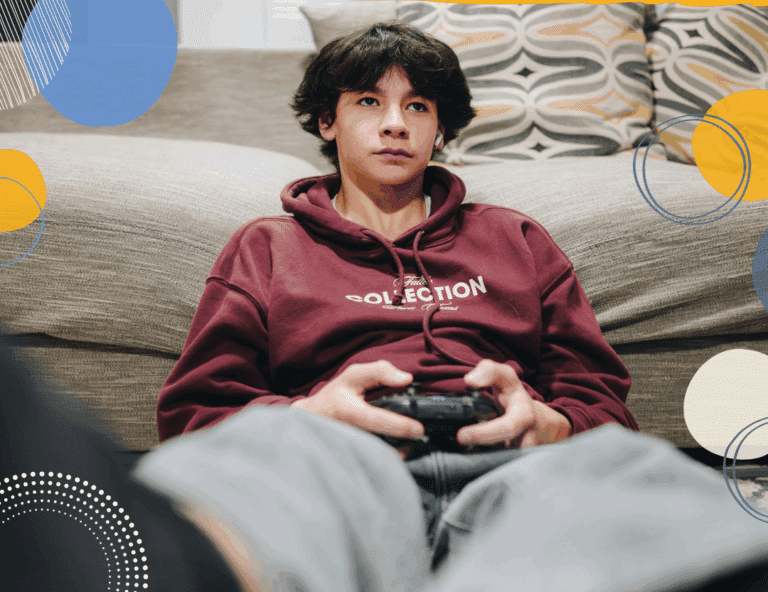The hurtful teenage years
I call them the hurtful teenage years for a reason.
When parents think about kids becoming teens, it’s usually teenage behaviour we worry about most. What will my teenager be like? Will they be sulky? Will they be rude? Will they go behind my back? Will they make stupid mistakes or put themselves at risk?
We’re less likely to turn our minds to how we might behave, the changes we might go through, or the feelings we might have. Yet, for many parents, the teenage years are a time of huge feelings and behaviour swings for us too.
I don’t think it is an overstatement to say that the teenage years can shake parents to the core. That sudden shift from sweet child to stroppy teen can throw us totally off kilter. If you are lucky, you will sail through with just a few bumps and some eye rolls. But, for others, it can be a time of intense feelings – fear and hurt, jealousy and anger (rage even!), and frustration, helplessness, and overwhelm.
If you are feeling all the feels as the parent of a teenager, you are not alone. Just because no-one else is talking about it doesn’t mean it’s only you. Parents of teens don’t talk enough about how the teenage years can feel (or, if we do, it’s the sweet empty nesting version of how much we are going to miss them when they leave home). We lock up the storm and put on a brave face.
So, if it helps, here’s my unmasking of how these hurtful teenage years can really feel.
You might be feeling none of these things (which is fine!) or you might be feeling:
Worry…
The stakes feel so much higher in the teenage years. Danger seems to lurk around every corner. We want to shepherd our child gently passed theses risks but we are suddenly deprived of the means to do so. Our control and influence start to slip away exactly as our worries rise. And that previously sweet and compliant child will no longer be ruled or guided by us. Advice is thrown straight back at us, or just ignored, so our worries grow.
Jealousy…
From the outside it can look like everyone else’s teen is doing well. We scroll social media feeds full of smiling teenagers out sightseeing with their parents, eating family meals in restaurants, joining in with family events – while our own teenager won’t spend a microsecond longer with us than is strictly necessary. And we can’t remember the last time they smiled at us. It’s just illusion, of course, but when you are craving some closeness, or worried about your teen, we tend to see the things that hurt us most.
Blame…
Perhaps you felt like you were doing an OK job at parenting in the first decade? Perhaps you were proud of how your child was turning out? If you are used to taking the credit for your child’s successes (even just secretly inside you), then a sudden pivot in the teenage years can quickly generate blame. This must be my fault. Or theirs. When we dare to look into our anger, and inspect it, we often find shame – shame that our teen is turning out ‘badly’ – and self-blame – that this is somehow our fault. It can be hard to remember that these hurtful teenage years are just passing through.
Loss…
And then those waves of loss crashing in, pure inconsolable loss, loss of the child we have spent a whole decade getting to know. The child who adored us and loved us deeply. Loss of that intimacy and of the way we felt whole when we were loved by them. Despite all the energy and love we have poured into being a parent, we are still left abandoned. Discarded.
Rejection…
Being pushed away by our own child, or treated poorly, or just told you are surplus to requirements, is a profound rejection which can stir up the deepest parts of us. It can spark rage, fury, sadness. But we get little sympathy from our teenager when we ask for our feelings to be seen. We are the dumping ground for their feelings – tossed on their big waves – our own feelings we must deal with by ourselves.
There are so many feelings that can come in these challenging teenage years. Positive feelings too – pride, protectiveness, love. Some days it can all feel just a little too much, a little too raw.
So, be kind to each other and to all the parents you know. Look into those brave faces. Most parents of teens are just trying to hold it all together. We are hanging on despite this rollercoaster of teen moods, despite being already stretched thin by midlife careers, elderly parents, relationship issues, (not to mention our own hormones too) .
These hurtful teenage years can come at us from every angle. But they do pass.
*This post contains affiliate links. That means that if you click through from this post and make a purchase, the Positive Parenting Project will receive a small commission. There is no additional charge to you. This helps us to keep providing free content for our readers. For more info, see Disclosure Notice.








Leave a Reply